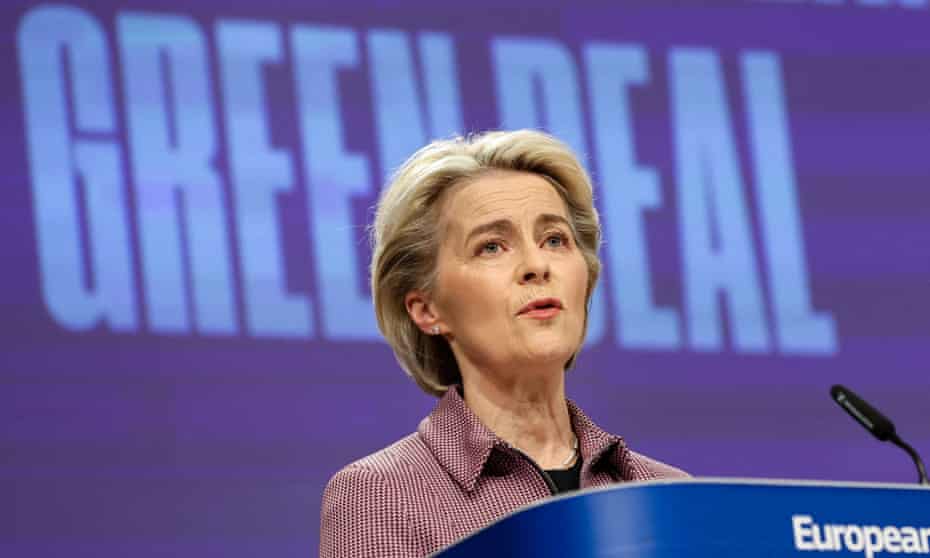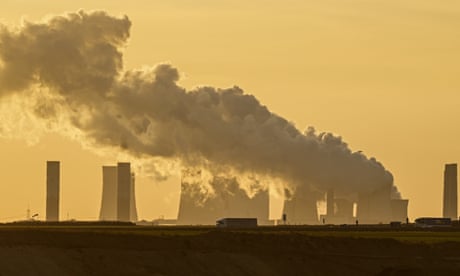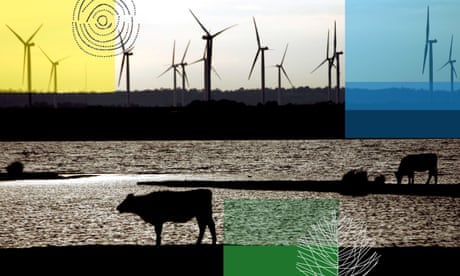Extract from The Guardian
Countries must close gap on funding target for developing countries says European Commission president.

The European Commission president, Ursula von der Leyen, speaking in Brussels this Thursday.
Last modified on Fri 29 Oct 2021 06.53 AEDT
The European Commission president has urged wealthy countries to close the gap to meet a $100bn annual climate finance target for developing nations a year earlier than expected.
Speaking before crucial meetings on the climate emergency at the G20, and at the UN Cop26 talks, the president, Ursula von der Leyen, said rich countries had “to try harder” to close the shortfall in climate finance.
The pledge from wealthy countries to raise $100bn a year to help developing nations tackle and adapt to global heating dates back to 2009 and was intended to be fulfilled by 2020. However, it will not be reached until 2023, according to the latest assessment from the Organisation for Economic Co-operation and Development.

An OECD report this week showed the developing countries would have access to $97bn in public and private funds in 2022 and $106bn in 2023.
Meeting the target is seen as crucial to building trust with some of the poorest countries in the world, which will be hardest hit by rising temperatures, increased drought and rain, and crop failure.
“There is still a small gap and I think we should put a lot of emphasis in trying to close that gap,” said von der Leyen, who will attend the G20 in Rome this weekend.
The EU said it was providing more than $25bn a year and is expected to announce an increase later this week.
The US president, Joe Biden, said last month he would work with Congress to double funds to $11.4bn by 2024, a goal EU officials welcomed but regarded as insufficient.
Von der Leyen told reporters that the G20, which is responsible for 80% of global emissions, would be a pacemaker for the Cop26 talks. She called on countries to come up with “credible commitments for decarbonisation” by mid century and “sufficient commitments to really cut emissions this decade”.
The EU has unveiled its green deal plan for net zero emissions by 2050 in July, but its credibility is threatened by internal divisions.

Poland’s prime minister, Mateusz Morawiecki, told the Financial Times recently that his country could veto decisions on the EU’s climate package, as a strategy to hit back over a long-running dispute concerning the rule of law.
Poland has almost no veto power, as most of the climate laws are to be agreed by qualified majority, but Warsaw could still make life difficult for the rest of the club.
“If you look at the global stage, Europe is the frontrunner without any question,” von der Leyen said, when asked about EU divisions. “But that should not reduce the pressure internally in the European Union that the climate puts on us to act quickly and to show that. It is also our duty and responsibility to move forward fast.”
The world risked irreversible tipping points, von der Leyen said, if countries failed to take action this decade. “The starting point is not a good one and therefore it is also a moment of truth, too. Science tells us very clearly and the reports tell us very clearly, you are not where you want to be in terms of fighting climate change.”
At the Cop26 talks von der Leyen is expected join Biden to launch an initiative to reduce emissions from methane, one of the most potent greenhouse gases that poses the biggest obstacle to keeping within the 1.5C limit to global heating.
So far 57 countries have signed up to a EU-US-sponsored “global methane pledge” where they will promise to reduce methane emissions by a least 30% by 2030, compared with 2020

No comments:
Post a Comment